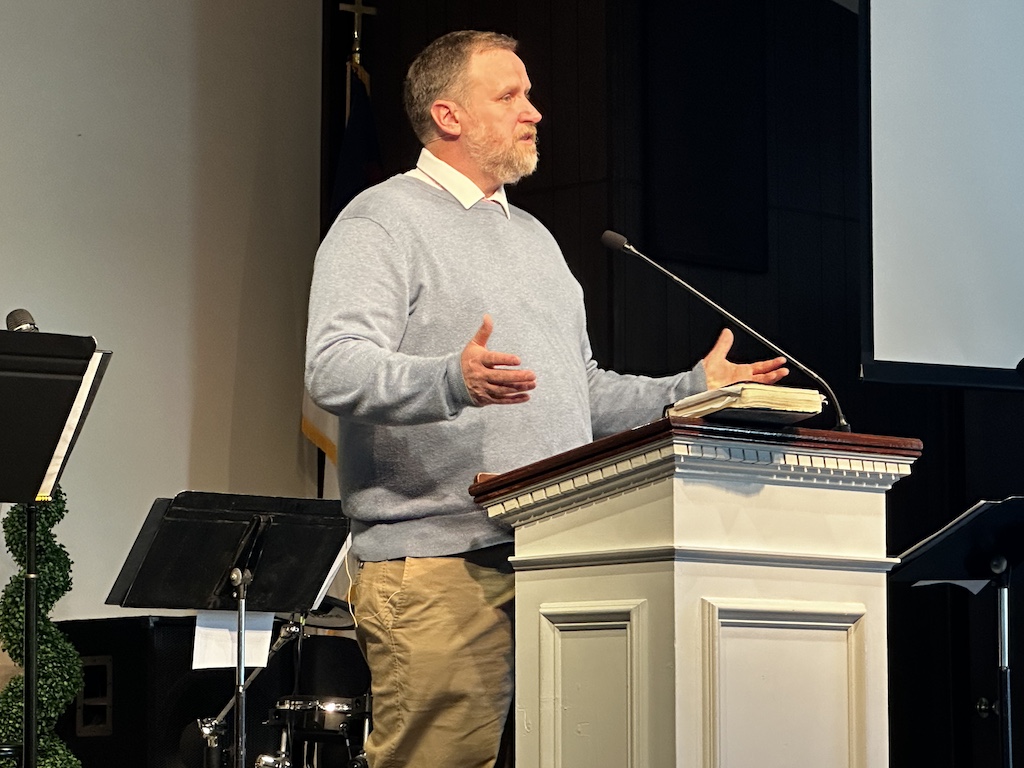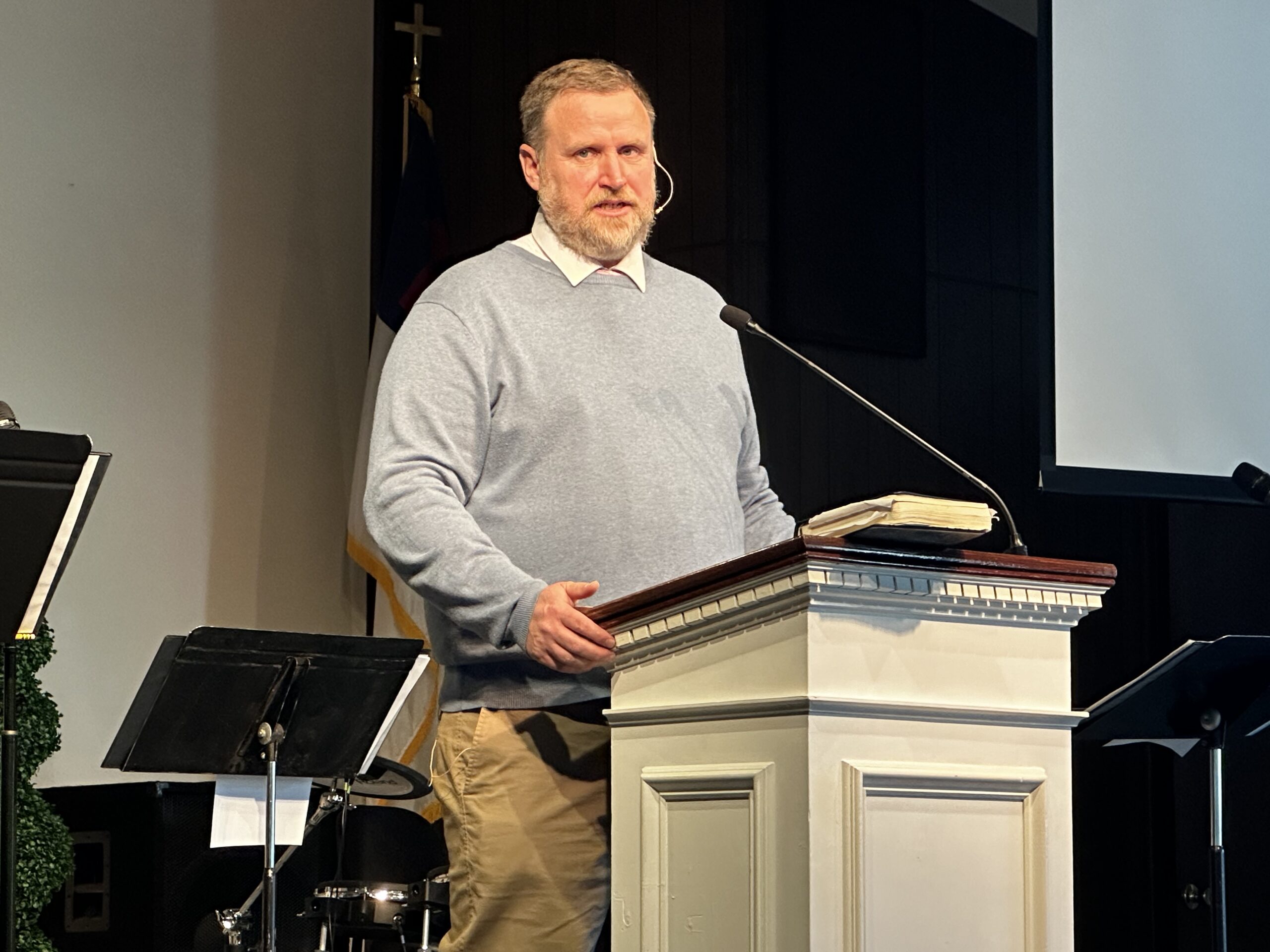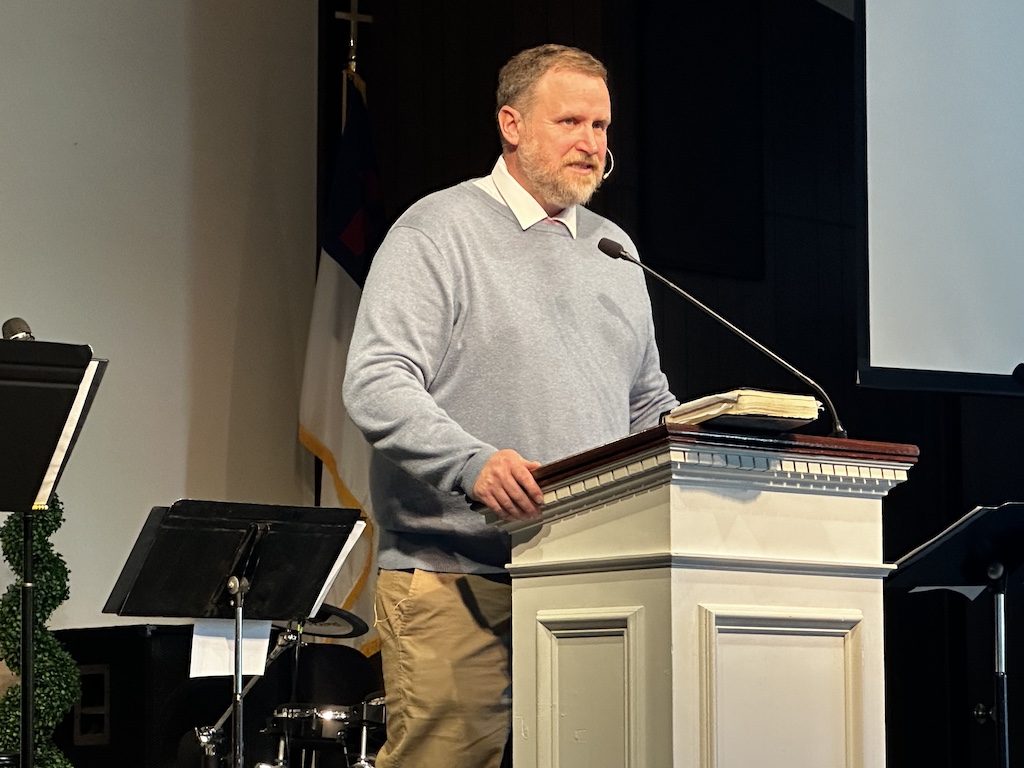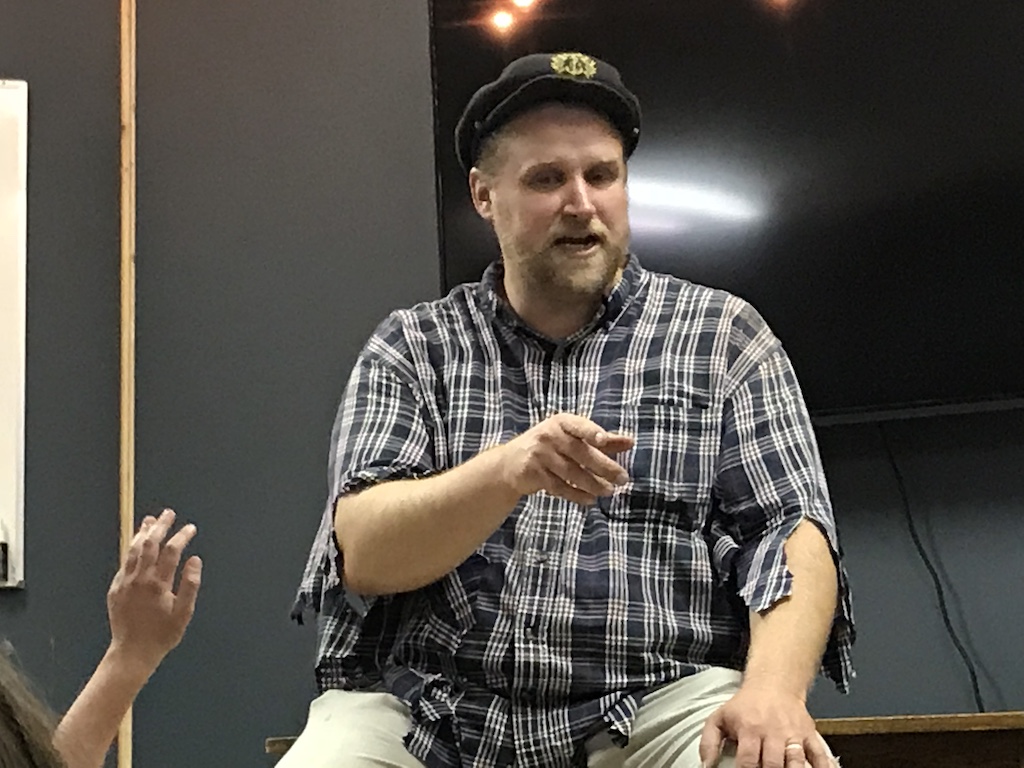Sermon Archive
June 2022
The Father’s Business
What comes to mind when you think about Father’s Day? Is it power tools and BBQs? New ties and #1 Dad Shirts? My family recently vacationed in Florida and spent a few days at Universal Studios. Just about every souvenir shop we entered had displays of fake Oscar awards. These awards display a man, standing tall, fit and chiseled and each one of these particular fakes was emblazoned with different monikers like, “Best Teacher”, “Best Grandparent”, and “#1 Dad”. Inevitably as we walked by eac…
Sack Cloth
Last message launched us into a new series that looks at the story of God’s plan to redeem fallen humanity by examining a number of scripture passages that focus on articles of clothing. We began with that first infamous instance of clothing ever mentioned in the Bible, fig leaves.
One of the types of clothing that is most often mentioned in the Bible is sackcloth. Sackcloth was typically made of dark goat hair. It was scratchy and very uncomfortable to wear. In the ancient world s…
Fig Leaves
Clothing holds a surprisingly prominent place in the story of God’s plan to redeem fallen humanity. The act of getting dressed is a daily ritual that I think very little about. I certainly do not often reflect on the spiritual significance of clothes wearing. At the first, Adam and Eve were naked and not ashamed in their garden home, but then they ate the forbidden fruit, and the very first symptom of the fall that reared its ugly head was their sudden awareness of being naked. This awoke…
May 2022
What Will Tomorrow Bring
Towards the end of each year a group of my friends and I make predictions for the coming year. I recently looked over our predictions from last December and I was struck by the fact that neither I nor any of my friends predicted Putin’s invasion of Ukraine, or Will Smith slapping Chris Rock at the Oscars. Nothing was said about Elon Musk attempting to buy Twitter, or a leaked draft decision from the supreme court pointing toward a possible overturn of Roe vs. Wade. None of us foresaw the ba…
Faith and Works
There is a sense as you read the Gospels that Jesus saw a lot of things that others did not. He saw hidden motives. He saw hidden needs. He saw hidden sin and hidden potential. He saw a hidden future and the hidden stratagems of the enemy as they tried vainly to change the future God had foreordained. Much of Jesus’ interactions with humanity as captured in the Gospels portray a clear-eyed Jesus addressing souls that were utterly blinded to the spiritual realities that surrounded them. An…
What Do You See
There is a sense as you read the Gospels that Jesus saw a lot of things that others did not. He saw hidden motives. He saw hidden needs. He saw hidden sin and hidden potential. He saw a hidden future and the hidden stratagems of the enemy as they tried vainly to change the future God had foreordained. Much of Jesus’ interactions with humanity as captured in the Gospels portray a clear-eyed Jesus addressing souls that were utterly blinded to the spiritual realities that surrounded them. An…
As A Son
It was pointed out to me recently that most Mother’s Day remarks issued from Christian pulpits down through the years have been given, somewhat ironically, by men. To which I responded, “That is definitely true, but this Sunday I don’t plan to speak about motherhood as a man but rather as a son.” And, speaking as a son, mothers are, in my experience, one of the great consolations in life. What I mean by that is that life is undoubtedly terrible sometimes, but my mom is now and alway…
Not in Vain
In the Revolutionary War a young teacher and spy for the Continental Army, named Nathan Hale, was caught by the British for spying and he was subsequently hung. His last words were “My only regret is that I have but one life to give for my country.” I remember reading that in a history book when I was a boy and being very impressed by his courage and commitment. I also remember thinking what a waste it would have been for him to die like that if, in the end, the war had been lost. I’m…
April 2022
To The Word
“Do nothing out of selfish ambition or vain conceit,
but in humility consider others better than yourselves.”
Philippians 2:3
but in humility consider others better than yourselves.”
Philippians 2:3
Over the past few years as we have been raising our children, one scripture that has repeatedly found its way into our life is Philippians 2:3. At times it has been a refrain prayed at night, other times a response to conflict between a brother and sister, and even the letters “CO” have found their way o…
Easter Sunday
As Christians we live in light of the startling claim that we believe that even though we will die we will be resurrected and live eternally. Why do we believe that? Well, chiefly, because Jesus was resurrected, and God has promised in His Word that all those who put their trust in Jesus alone for their salvation will be raised from the dead as He was raised.
The importance of the resurrection to the truth claims of Christianity cannot be overstated. If the resurrection of Jesus Chri…


 Subscribe to sermon Podcast RSS
Subscribe to sermon Podcast RSS




